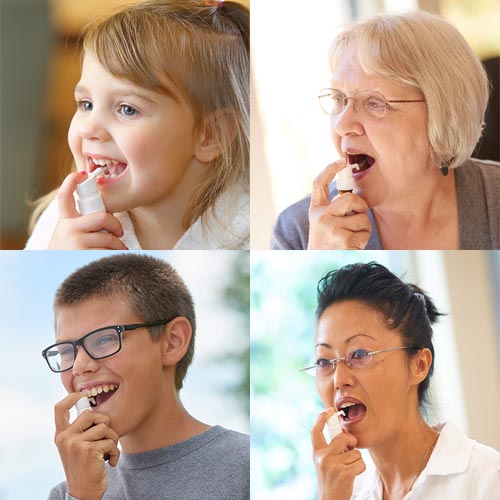Who May Benefit from Allergy Drops?
 Allergy drops, also called sublingual immunotherapy, offer long-term benefits you can’t achieve from temporary allergy symptom-relieving medications. Immunotherapy is the only allergy treatment that changes your underlying allergic disease.
Allergy drops, also called sublingual immunotherapy, offer long-term benefits you can’t achieve from temporary allergy symptom-relieving medications. Immunotherapy is the only allergy treatment that changes your underlying allergic disease.
Allergy drop treatment following the La Crosse Method™ Protocol is designed for patient safety and comfort. It is possible to treat those who were too allergic for allergy shots or other methods. In clinical use since 1970, this allergy drop treatment protocol has proven especially helpful for:
Infants and children
Allergy drops are helpful for children with eczema and recurrent ear infections due to underlying allergy. Research shows that many children with untreated eczema and allergies often develop asthma and other chronic conditions later in life, so treating their allergy early can have lifelong benefits.
Severe asthmatics
Research shows positive outcomes when sublingual immunotherapy is used to treat allergies that trigger asthma. By building tolerance to allergic/asthma triggers, the need for asthma medication may decrease. And because of its safety profile, even severe asthmatics can be treated with sublingual immunotherapy.
Patients with chronic conditions including sinusitis
Chronic sinus conditions are triggered by allergies in as many as 80% of patients. Treating the underlying allergic disease with allergy drops has shown favorable results for patients with chronic sinus conditions.
Patients with food and mold allergies
Other than avoidance and symptom relieving medication, there has been little to offer patients suffering from these allergies. Treating food and mold allergies with sublingual immunotherapy has proven to be something even the most sensitive patients can tolerate.
Needle-sensitive patients
Sublingual immunotherapy may be the ideal solution for patients who fear needles, and are unwilling or unable to take allergy shots. This includes patients who have experienced systemic reactions to injection therapy, who dread shots, who cannot travel for frequent treatment, and especially young children.
Patients with multiple allergies
People with allergies to dust, pollens, animals and more have shown clear improvements after following a regular allergy drop treatment regimen. Allergy drops following the La Crosse Method allow for multiple allergies to be treated at the same time.
